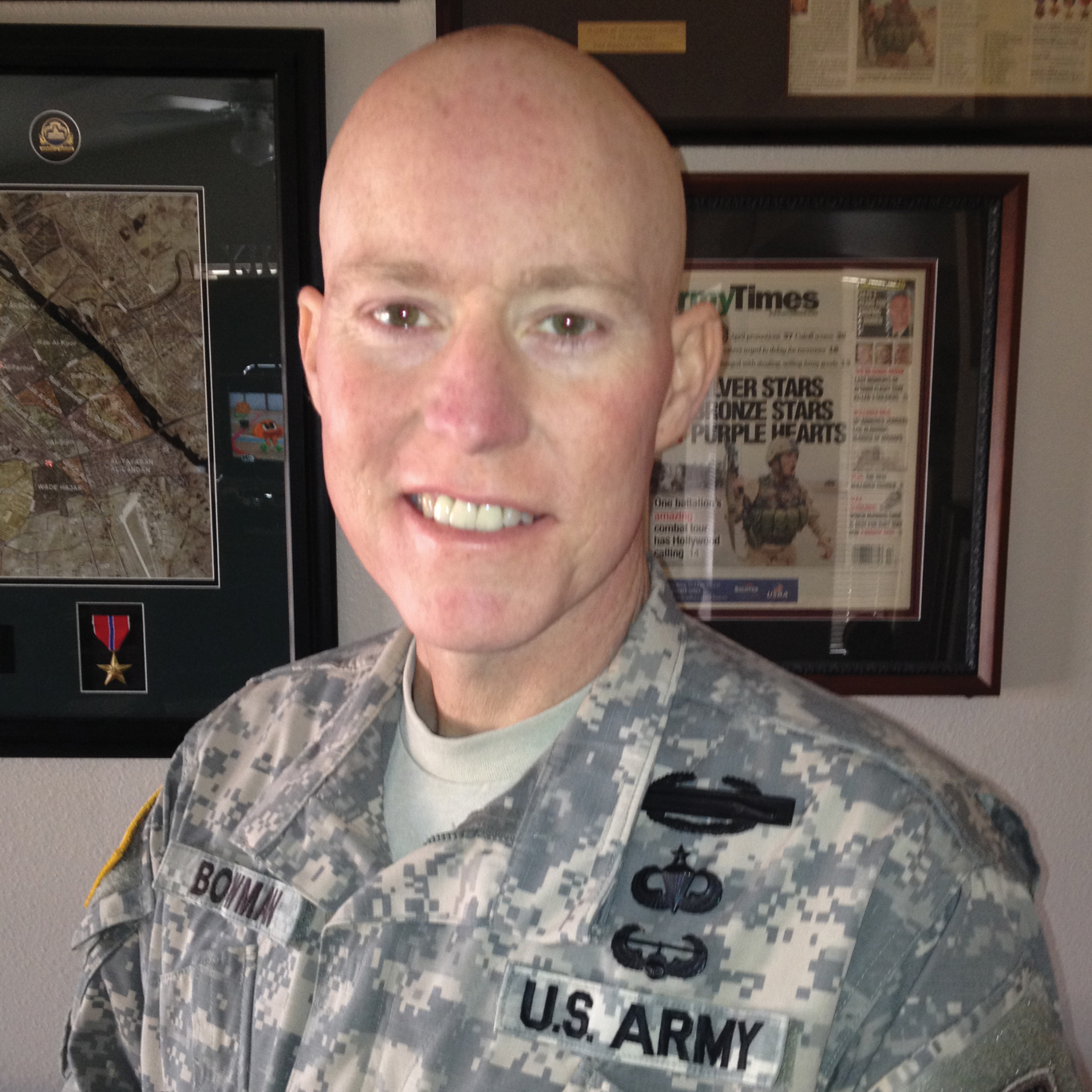Military toxins are becoming more harmful to our veterans

Imagine surviving two deployments in Iraq, constantly dodging bombs and enemy gunfire, only to realize that the air you were once thankful to be able to breathe was making you sick. This is what happened to Sergeant Major Rob Bowman, who passed away from cholangiocarcinoma, a rare form of bile duct cancer, at the age of 44.
 Unfortunately, as many military families know all too well, Sergeant Major Bowman’s situation is not unique. “Of the 30 men in Rob’s platoon who returned home, nearly one-third of them developed uncommon cancers and medical conditions,” said Coleen Bowman, Rob’s surviving spouse, “and the first doctor we saw confirmed immediately that the cause of Rob’s cancer was environmental, not genetic.”
Unfortunately, as many military families know all too well, Sergeant Major Bowman’s situation is not unique. “Of the 30 men in Rob’s platoon who returned home, nearly one-third of them developed uncommon cancers and medical conditions,” said Coleen Bowman, Rob’s surviving spouse, “and the first doctor we saw confirmed immediately that the cause of Rob’s cancer was environmental, not genetic.”
The environmental exposure Bowman referenced — known as toxic exposures in the military — is of increased interest to lawmakers, advocates, and medical professionals as a result of the frequency with which it is occurring in post-9/11 veterans. However, given the notoriously slow pace of legislative oversight and government-funded medical studies, advocacy groups are now playing an important role in finding answers for military families.
Although most people are familiar with the term Agent Orange, problems that stem from toxic exposures while serving in the military are nearly as old as civilization itself. Arrows with poisoned tips were used on the battlefield as early as 1500 B.C. And in 1776, a Tory sympathizer tried to add an unknown poison to George Washington’s food at a New York City tavern.
However, military toxicology, i.e., the study of substances that cause harmful effects in those who serve, became exponentially more harmful during the 20th century. And, unfortunately, we, as a nation, still have not figured out how to take care of those who have come into contact with such toxic exposures during their military service.
“We need the VA and the DoD to acknowledge that this is how these soldiers are dying,” Bowman stated, “we need better screenings, both before and after deployments. Rob’s complaints were initially blown off by his doctors. We’ve made progress, but we still have a long way to go.”
Current legislative efforts
This year’s National Defense Authorization Act, which has been agreed to by both the House and the Senate, contains two important provisions regarding veterans who’ve been subject to toxic exposures in the military. Unfortunately, these provisions, which pertain to the declassification of certain Department of Defense documents related to toxic exposures, and requiring the VA to “coordinate efforts” to better understand toxic exposures, do not go far enough toward remedying this problem.
Section 738, the section that pertains to the VA, is the epitome of many Americans’ frustrations with Washington; it uses vague language that allows members to feel as if they are addressing the issue, but the language fails to require any specific action that would translate to tangible efforts to veterans and their survivors.

